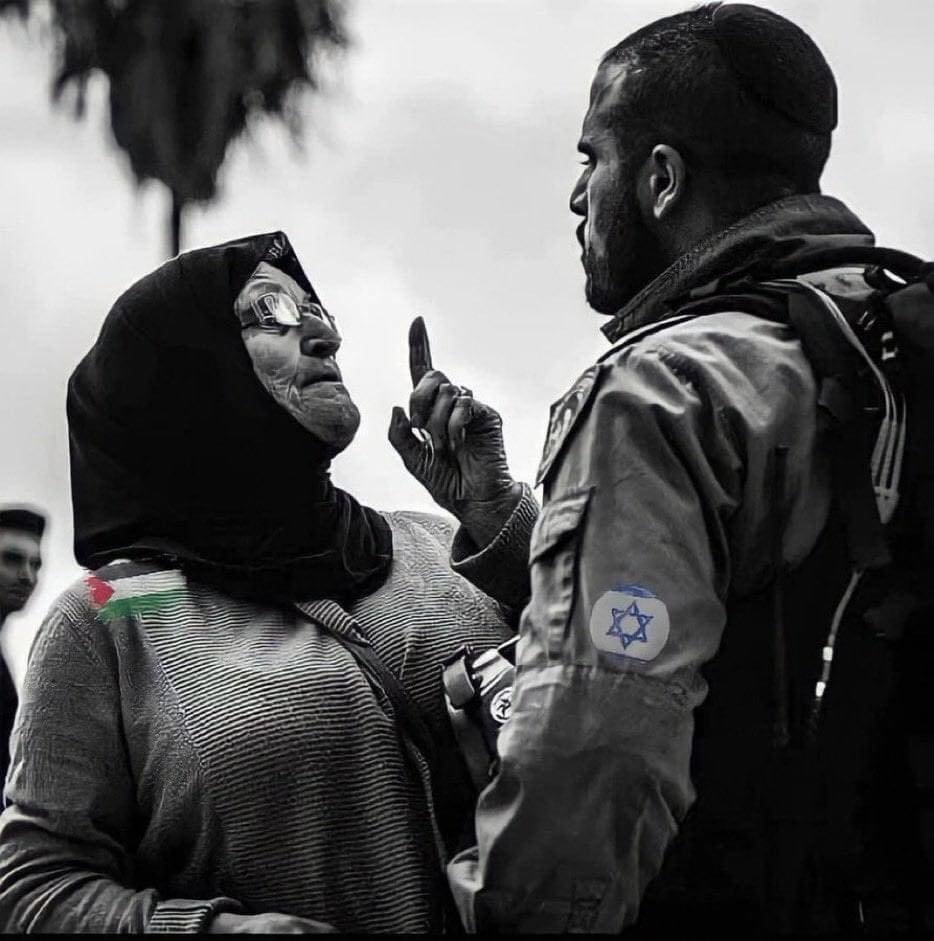The threat to evict Palestinian families from Sheikh Jarrah district in East Jerusalem had become a rallying cry for Palestinians and an emblem of the very unbalanced conflict between Israel and Palestine. This threat is part of a wider effort to remove Palestinians from East Jerusalem to reinforce the Jewish control of East Jerusalem. The Israeli goal is to prevent it from being included in future peace negotiations as the capital of the Palestinian state and secure the future of Jerusalem as a Jewish capital for the Jewish people. A textbook example of ethnic cleansing, and a traditional Israeli tactic to move things on the ground to shape negotiations in their favor.
What’s been happening for the last few days is, effectively, the highest point of violent clashes in years between the two sides to the extent that some are talking about the prospects of a third intifada. While it is pretty early to call the unravelling unrest a third in intifada, it could definitely evolve to be one especially after the horrible escalation of violence against the Palestinians in East Jerusalem and in Gaza. Currently, Israel is escalating violence by firing rockets into Gaza after clashes in Jerusalem Monday left hundreds of Palestinians injured. More problematically, there is nothing happening on the ground that indicates any concrete international move against Israel to force to stop this apartheid.
Context
Since the start of the month, the prospect of the evictions prompted protests and confrontations between Palestinians and the Israeli police and Jewish extremists. Hence and out of calculations, the Israeli Supreme Court delayed by up to 30 days a decision on whether to expel Palestinian families from their homes in East Jerusalem out of fear that the hearing would intensify the already in place wave of unrest. Tensions reached a peak at the Aqsa mosque in Jerusalem on Friday night, where police officers threw grenades on and shot rubber bullets into worshipers praying.
On social media, videos showed Israeli police inside the Aqsa mosque, the holiest of places during the holiest of months. This outraged Muslims around the world making the hashtag # SaveSheikhJarrah an international trend. Things were at that level of clashes and online campaigning, till a certain point which is when Hamas fired rockets into Israel giving it a space to talk about self-defense and retaliate. Israeli airstrikes on Gaza left at least 24 dead, including nine children. According to Israel Defense Forces (IDF), the rockets killed 15 militants. Meanwhile, at least six were injured in the Israeli city of Ashkelon on Tuesday morning after a residential building was struck with rocket fire from Gaza. Additionally, the (IDF) said that 200 rockets have been fired from Gaza towards Israel since the hostilities flared Monday.
Till the moment, the Israeli government is communicating that the Sheikh Jarrah case is a private real-estate dispute between the Palestinian families and a Jewish settler group. This, indeed, unwitty narrative aims at camouflaging the very political nature of the attempted displacement and how it relates to future negotiations as mentioned earlier, but a quick look at the origins of the case would demonstrate how political had it been all along. Israel captured East Jerusalem in 1967, it eventually gave ownership of the Sheikh Jarrah homes to the Jewish trusts. The trusts later sold it to right-wing settlers, who have tried to evict the residing Palestinians ever since. Some families have already been forced out, while the others are in various stages of the court process like the families that are currently clashing with the Israeli police forces.
Israel an ‘Apartheid’ State: A PR Liability?
After few days of the clashes, the Palestinian Foreign Ministry sent a letter to the International Criminal Court (ICC) regarding Israel’s actions against the Palestinian people in the Sheikh Jarrah neighborhood. The letter sent called on ICC to take a public stand against crimes perpetuated by Israel against the Palestinians in the Sheikh Jarrah neighborhood. Even before the crisis, ICC had already announced it would investigate war crimes in the Israeli-occupied West Bank and Gaza Strip, and Israel has said it will not cooperate with the probe.
Also, in a recently published report, Human Rights Watch (HRW) accused Israel of pursuing a policy of apartheid against Palestinians. Omar Shakir, the Watchdog’s Israel and Palestine director, said the report was “the starkest finding. HRW has reached on Israeli conduct in 30 years.” The 213-page document alleges that Israel is committing the crime of “apartheid” by seeking to maintain Jewish domination over Palestinians. It demonstrated that there was a “present-day reality of a single authority, the Israeli government … methodologically privileging Jewish Israelis while repressing Palestinians, most severely in the occupied territory.” The report concluded that “the oppression of Palestinians there has reached a threshold and a permanence that meets the definitions of the crimes of apartheid and persecution.”
These criticisms are against a backdrop of an international public that had become more aware of the history of the struggle and the continued Israeli violations against innocent people. This is especially true in the current times of social media where users can see for themselves in real time what’s happening by other users and not having to rely on the coverage of the traditional media. Sheikh Jarrah crisis is, in fact, a case in point in this, because Palestinians have been live-feeding to the whole world the Israeli violence against civilians. These videos set in motion a great public momentum that resulted in #SaveSheikhJarrah being an international viral. Of course, this is not to suggest that social media is a totally free space, because still there is a significant censorship and manipulation. In this crisis for example, Instagram, Facebook and Twitter has admitted that user posts reporting on evictions by Israel in east Jerusalem’s Sheikh Jarrah neighbourhood were removed. However, the social media platforms said it was a technical error, after being accused of deleting posts and suspending accounts to keep what’s happening in the dark.
For any other state such publicity would be a major PR liability affecting the reputation of a country, but in Israel case it is not as of a worrying issue as much it would have been for others. They count on their skills in re-writing the narrative, relying on their international political and diplomatic powers as well as major PR agencies. So, it’s been the case that if there happened to be a liability, it is usually a temporary one especially among non-Arab and non-Muslim communities.
The Outlook
Probably, the intensity of the clashes will increase because of the following factors:
- Israel is already shelling Gaza with rockets, citing the right to self-defense after Hamas had given it the pretext, as usual. These Hamas rockets do little beyond triggering a disproportionate response and distract in building a bigger international humanitarian momentum. In fact, things would have been completely different if Hamas had greater or even comparable military capabilities to that of Israel. Because then, Hamas rockets would have been more painful to Israel and Israel rockets less painful to Palestine. At this point, a hurting stalemate could have been recached forcing both equally to seek ceasefire and sit on the negotiations table. Currently, Israel had started its usual disproportionate retaliation and won’t stop before a humanitarian crisis is evident.
- Another factor pointing at the intensification is the Israeli internal politics. For years now, Israel had been in a limbo of elections. In a course of two years, Israel had 4 elections, and if another attempt to form a coalition government failed, this will mean that a fifth elections will be underway. The prime minister Netanyahu had contended in them 4 and will be in the fifth if it took place. The point is that Netanyahu knows very well that his constituency are mainly from the far-right and that going forward with enforcing the settlements will play much to his favor. So, it is highly probable he will try to pose as the man committed to the rights of the settlers as well as the strongman defending the Israelis against Hamas rockets.
- Also, there is a regional factor, that is the fading Arab support especially from the Arab states that had recently normalized ties with Israel. While the support had never been of any concrete benefit on the ground, it had nevertheless contributed to a historic Arab-Muslim momentum that conveyed the real happenings where Israel is occupying the Palestinian lands and violating human rights, despite the Israeli successful international PR campaigns. Now, after UAE, Bahrain and Sudan normalized with Israel a very different normalization than that of Egypt and Jordan (much warmer), the Arab public sphere had become less populated with criticisms to Israel and its moves. This took the shape of some of the intelligentsia and elite of these countries blame-shifting what happened to make it the mistake of the Palestinians. On the formal level though, still these countries with the exception of Sudan voiced rejection to what happened in Sheikh Jarrah.
- Internationally, it had become evident that the hopes about Biden administration as being more Palestine-friendly proved false. The official comments had been very telling in that respect. For example, US Secretary of State Antony Blinken on Monday said the rocket attacks from Gaza against Israel should stop “immediately,” and he urged all sides to take steps to reduce tensions. Also, Ned Price, the State Department Spokesperson said “the United States condemns in the strongest terms the barrage of rocket attacks fired into Israel in recent hours, while we urge de-escalation on all sides, we also recognize Israel’s legitimate right to defend itself, to defend its people and its territory”. The American administration failed to recognize the Israeli violations against civilians and only recognized Israel’s right to self-defense.


